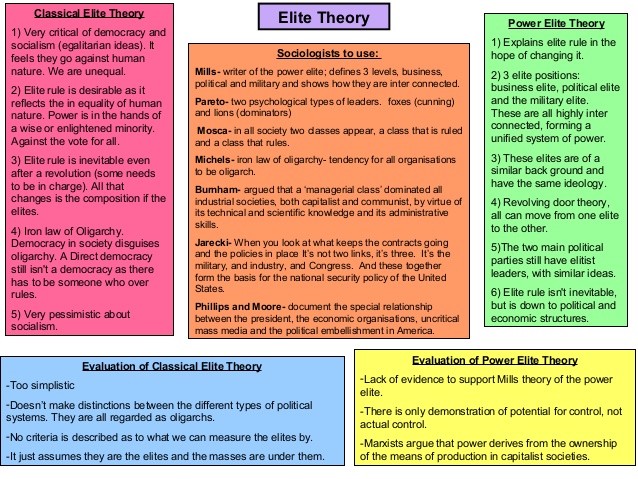Imagine a world where a select few hold the reins of power, shaping the destinies of nations and influencing the lives of billions. This isn’t the stuff of conspiracy theories; it’s the reality painted by the sociological concept of the “power elite.” Far from a fringe idea, the power elite framework provides a lens through which we can analyze how concentrated power shapes our world, from political landscapes to economic systems and even our daily routines.

Image: triumphias.com
This article delves into the sociological definition of the power elite, exploring its origins, its key tenets, and its profound impact on modern society. By understanding this concept, we can gain valuable insights into the complex dynamics of power and influence, empowering ourselves to navigate the world with a more discerning eye.
The Power Elite: Origins and Foundations
The term “power elite” was coined by sociologist C. Wright Mills in his groundbreaking 1956 book, The Power Elite. Mills argued that a small, interconnected group of individuals, drawn from the upper echelons of government, the military, and the corporate world, wield disproportionate power and influence over American society.
Mills’s theory was heavily influenced by the historical context of the Cold War and the rise of large-scale organizations. He observed how power was becoming centralized, leading to a concentration of decision-making within a select few. This, he argued, created a system where the interests of the masses were marginalized, leading to a disconnect between those who hold power and those who are governed.
The Interlocking Directorates of Power
One of the key elements of Mills’s theory is the concept of “interlocking directorates.” This refers to the overlapping memberships of individuals in the boards of directors of major corporations, government agencies, and prestigious organizations.
These interconnected individuals, argues Mills, share a common worldview, experience, and network of contacts. They move seamlessly between different spheres of power, reinforcing each other’s influence and building a formidable network of control. Imagine, for instance, a corporate executive serving on the board of a think tank that influences government policy, contributing to a feedback loop where corporate interests shape both economic and political landscapes.
Beyond the Elite: Challenging Assumptions
While Mills’s work provided a powerful framework for understanding concentrated power, his ideas have been subject to debate and refinement over the decades. Critics argue that the power elite framework is too simplistic, failing to account for the diversity of power structures within different societies and the influence of social movements and emerging technologies.
However, the concept remains relevant. It continues to inform our understanding of how power dynamics influence policy, social structures, and individual lives, particularly in an era where globalization and technological advancements have further interconnected various sectors of society.

Image: sociology.plus
The Power Elite in the Information Age
As the world enters the digital age, the dynamics of power are further evolving. The rise of social media and online platforms has created new channels for disseminating information and mobilizing public opinion. This has, in turn, generated questions about the influence of tech giants and their potential impact on political discourse, privacy, and even democratic processes.
Sociologists studying the power elite in the digital age explore how technology amplifies existing power structures, potentially consolidating control in the hands of a few tech giants. They also examine how online platforms can be used to mobilize against concentrated power, leading to the formation of new social movements and alternative forms of governance.
Beyond Theory: The Practical Implications of Power
Understanding the power elite framework isn’t just an academic exercise; it has practical implications for navigating our own lives and making informed decisions. By recognizing how power dynamics operate, we can:
- Become more discerning consumers of information. We can critically evaluate the sources of information we consume, recognizing potential biases and vested interests.
- Engage in informed political action. We can hold our representatives accountable and be active participants in shaping public policy.
- Support initiatives that promote economic justice and fair distribution of resources. By understanding the power dynamics at play, we can actively work towards mitigating the inequalities that arise from concentrated power.
Power Elite Sociology Definition
Empowering Ourselves: Taking Action in a Powerful World
The power elite framework serves as a potent reminder that power is not static. It’s a dynamic force that can be challenged, reshaped, and ultimately, influenced by individuals and communities who choose to act. By embracing critical thinking, engaging in public dialogue, and actively participating in shaping our world, we can contribute to a society that is more equitable, just, and responsive to the needs of all.






